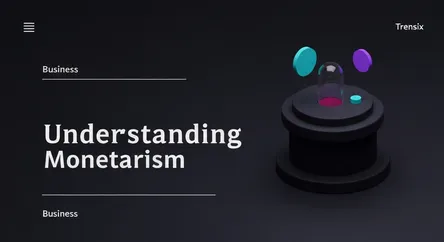Business
Understanding Monetarism

Discover Monetarism, the economic theory that emphasizes the money supply's role in controlling inflation and fostering economic stability.
What is it?
Monetarism is an economic school of thought asserting that the total amount of money in an economy—the money supply—is the primary driver of economic activity and inflation. Championed by Nobel laureate Milton Friedman, it argues that governments can achieve economic stability by targeting a steady, predictable growth rate for the money supply. According to monetarists, excessive expansion of the money supply by central banks is the main cause of inflation, famously summarized by Friedman's quote, "Inflation is always and everywhere a monetary phenomenon."
Why is it trending?
Monetarism is trending again due to the recent global surge in inflation. As prices soared post-pandemic, central banks like the U.S. Federal Reserve implemented aggressive interest rate hikes and tightened monetary policy—actions deeply rooted in monetarist principles. This has reignited debates among economists and policymakers about the effectiveness of controlling the money supply to tame inflation versus other fiscal measures, especially with growing concerns about triggering a recession.
How does it affect people?
Monetarist policies directly impact personal finances. When a central bank raises interest rates to control the money supply, borrowing becomes more expensive. This translates to higher mortgage rates for homebuyers, more costly car loans, and increased credit card interest. While the long-term goal is to curb inflation and preserve the purchasing power of your savings, the immediate effect can be a slowdown in economic growth. This may lead to businesses cutting back on hiring or investment, potentially affecting job security and wages.